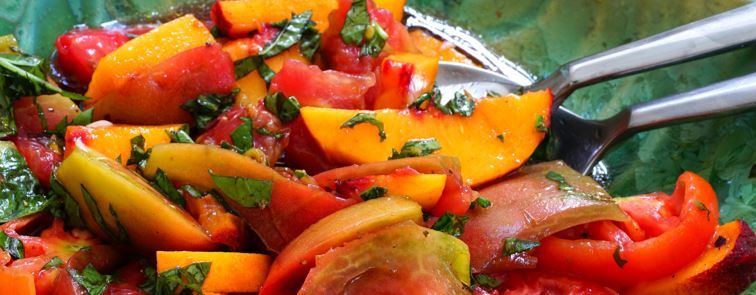Article
Should Gout Patients Avoid Tomatoes?
Research shows a possible biological basis between gout, tomatoes and other foods.
(©Eqroy,AdobeStock)

Patients with gout are often told to avoid certain foods that might trigger a gout attack. Some of these triggers have not been substantiated by the medical literature, but anecedotal evidence shows that they exist.
Now, a new study published in the Aug. 19 issue of BMC Musculoskeletal Disorders, suggests a biological basis by demonstrating a positive association between a spike in serum urate levels and eating fish, red meat, tomato and other foods.
The study is based on data from earlier studies on this subject, including the Atherosclerosis Risk in Communities (ARIC), Cardiovascular Health Study (CHS) and Framington Heart Study (FHS) Generation.
The new study includes 1,791 men and women with confirmed diagnosis of gout. Researchers asked participants if any particular foods or beverages triggered gout attacks. An additional sample set of 260 people of Maori descent from the North Island of New Zealand was included, for a total of 2,052 study participants. The researchers divided the group’s identified foods and beverages into 10 categories:
- Alcohol
- Dairy products
- Fruit
- Poultry
- Red meat
- Seafood/fish
- Sugar-sweetened beverages
- Tomatoes
- Vegetables
- Other
The list of the top four foods and beverage triggers was followed by vegetables, fruit and sugar-sweetened drinks.
The researchers reported that tomatoes as a trigger was more common among the New Zealand Maori, Ngati Porou Maori and New Zealand Pacific Island people, due to a greater genetic risk.
Earlier studies previously correlated the seafood/fish, alcohol and red meat with serum urate levels, so the researchers hypothesized this would also be the case for tomatoes.
After testing for the association with the ARIC, CHS and FHS data, researchers found a positive association in the ARIC sample set: an increase in serum urate per additional serving per week of tomatoes. There was a similar positive direction found in the CHS and FHS samples.
The researchers then looked at studies that examined plasma urate levels after subjects consumed tomatoes or tomato products. While one study did find an average increase in levels 48 hours after consumption, other studies did not have the same results.
“There are two groups of chemicals in tomatoes that could enhance the amount of uric acid in the blood plasma,” H.P. Vasantha Rupasinghe, Ph.D., P.Ag., explained in an interview. “One group is phenolic acid, and the second group is glutamate.”
In an interview with Rheumatology Network, H.P. Vasantha Rupasinghe, Ph.D., Canada Research Chair in Fruit Bioactives and BioProducts at Dalhousie University in Nova Scotia, said there are two groups of chemicals in tomatoes that could enhance the amount of uric acid in the blood plasma.
“One group is phenolic acid, and the second group is glutamate,” he said. According to Rupasinghe, phenolic acids and glutamate are a very minor components in tomatoes though: “If you eat 100 grams, you get only three to five milligrams of phenolic acid and 140 milligrams of glutamate, very small amounts.” One hundred grams would be one tomato, he explained.
“There are other foods that are high in glutamate, like soy sauce, some cheeses like Parmesan cheese, some mushrooms, and grape juice.” So, while tomatoes do have the ability to trigger gout attacks, they are like other foods in the “possible trigger” category.
The study authors did acknowledge that more research is needed: “Further research into the relationship between gout (and onset of gout attacks) and tomatoes needs to be conducted, to further investigate this relationship, potentially with a case-crossover study design, as previously used to demonstrate a purine-rich diet and alcohol as triggers of acute gout attacks. Analysis of any effect on urinary uric acid excretion and glutamate metabolism is also required to identify the mechanisms behind this association.”
A total of 1,447 (70.6 percent) of the 2,051 subjects self-reported that one or more foods or beverages would trigger a gout attack, and 69.4 percent reported more than one trigger.
____________________
REFERENCE
Flynn Tj, et al. Positive association of tomato consumption with serum urate: support for tomato consumption as an anecdotal trigger of gout flares.BMC Musculoskeletal Disorders. 2015, 16:196 doi:10.1186/s12891-015-0661-8




